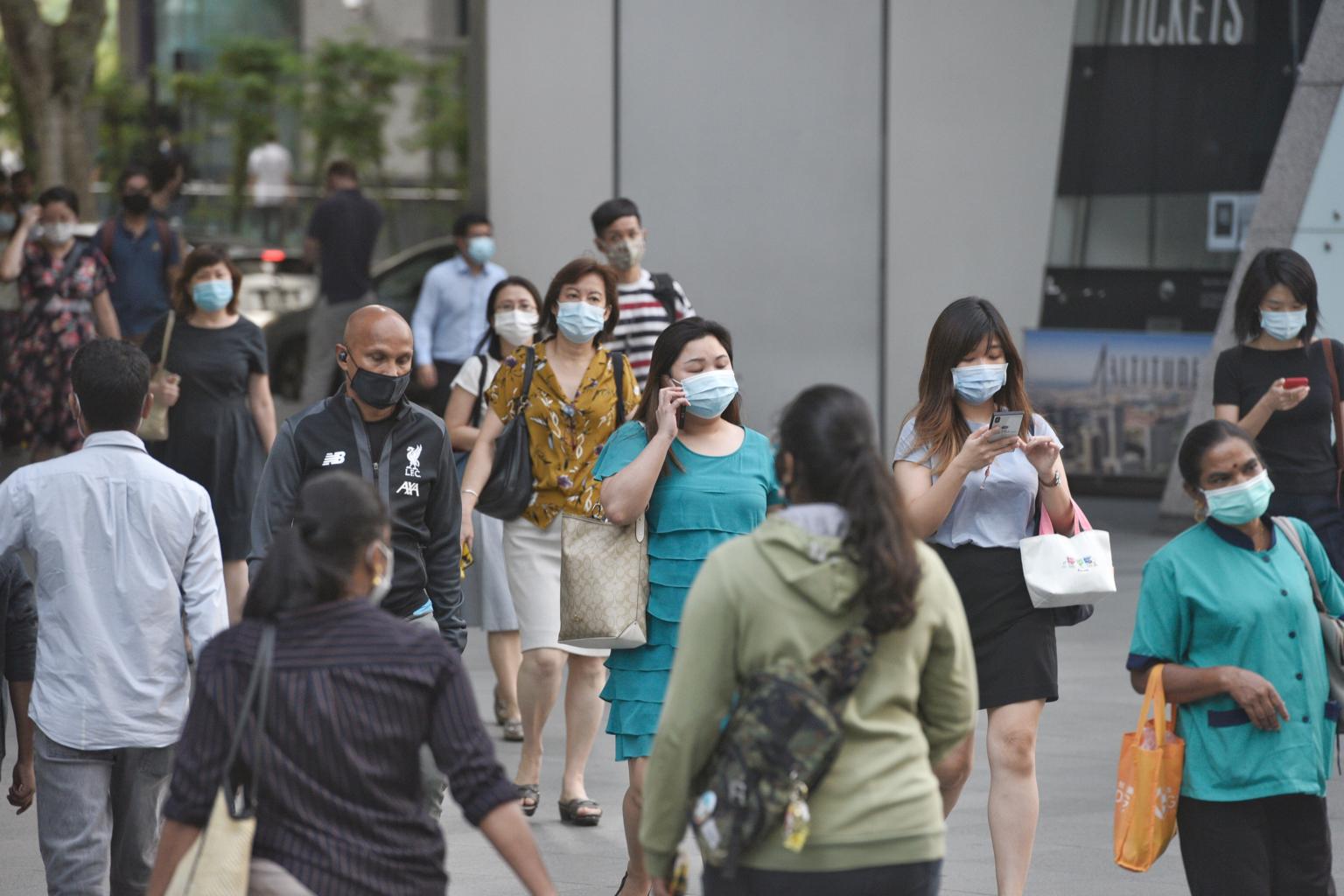JSS and other Covid-19 measures to end or change from April 1 as Singapore economy recovers
Sign up now: Get ST's newsletters delivered to your inbox

Some financing schemes for businesses will also see enhancements cease.
ST PHOTO: DESMOND WEE
Follow topic:
SINGAPORE - With economic recovery gaining traction, some Covid-19 support measures and schemes will lapse, while others will be limited by their size and scope from Thursday (April 1).
These include insurance relief for businesses and individuals and the Jobs Support Scheme, which will cease for all companies except those in hard-hit sectors.
Some financing schemes for businesses will also see enhancements cease, such as the Enterprise Financing Scheme - SME Working Capital Loan.
However, some companies could continue to struggle as conditions remain challenging for their industries.
The overall economic backdrop has significantly improved since the record growth decline in the May-June quarter of 2020 that took the full brunt of the circuit breaker at home and lockdowns abroad.
However, the recovery momentum has so far been led by the export-oriented manufacturing sector. Services continue to suffer travel restrictions and social distancing measures.
Most analysts and industry leaders contacted by The Straits Times agree that the recovery is not yet fully synchronised and quite a few companies, especially the small and medium-sized enterprises (SMEs), are still struggling to catch up.
Singapore Business Federation chief executive Lam Yi Young told ST that a post-Budget survey found that 69 per cent of large companies and only 37 per cent of SMEs were confident that their businesses will pick up in the next six to 12 months.
The SBF survey conducted from Feb 17 to March 12 yielded responses from 218 companies - 82 per cent were SMEs - and showed that 46 per cent were concerned that the Budget 2021 measures may not be sufficient in defraying the impact of Covid-19 on businesses.
Meanwhile, 44 per cent felt that the measures were balanced in addressing both long-term and immediate challenges.
SBF findings match the feedback analysts are getting from SMEs.
Ms Selena Ling, OCBC Bank's chief economist and head of treasury research and strategy, said: "The anecdotal feedback from SMEs is that while green shoots are sprouting, some are still cautious as to the sustainability of these green shoots, especially if the policy support runs out and their specific industry is still facing significant headwinds."
She added: "The reality is that costs may have risen in areas of Covid-related hygiene and social distancing measures in their daily operations, but demand conditions may not have fully normalised."
For instance, food and beverage outlets are grappling with capacity constraints as dining out is still limited to groups of eight, and delivery services and supermarkets are providing stiff competition.
SMEs are important not just for overall economic recovery but also because they employ the bulk of the local workforce.
Mr Lam said most companies consider the Wage Credit Scheme, Jobs Growth Incentive and the SGUnited Skills, Traineeship and Mid-Career Pathways Programmes as the most useful Budget 2021 measures.
Mr Irvin Seah, senior economist at DBS, said: "We are not entirely out of the woods. There are companies that are still struggling and hence, there could also be pockets of retrenchments ahead."
Ms Ling of OCBC agreed that the healing in the domestic labour market may be slower than the headline GDP growth recovery.
"It is plausible that there is a temporary speed bump when the support runs out, but the key to SME survival and competitiveness should not be support-based but demand-driven at the end of the day," she noted.
WEC Engineers & Constructors, a civil and infrastructure construction company, is among many local SME of the built environment sector where labour costs have increased due to restrictions on the inflow of migrant workers.
Firms in the sector are also operating at lower capacity due to the need to comply with safe management measures, while the industry itself is on the front line of a drive to cut dependence on foreign workers.
Mr Lee Yeow Siang Matthew, WEC's executive director, said: "While we are appreciative of the support rendered by the Government on many initiatives over the past year, such as Job Support Scheme et cetera, we have yet to recover to the required productivity level before Covid.
"This has affected our ability to sustain our business profitably to absorb all the necessary costs on measures that have been implemented to curb the spread of Covid."
Mr Lee said more government support and better administration of manpower schemes that encourage the built environment sector to hire more residents would help.
More machinery grants from the Building and Construction Authority can help speed up mechanisation and digitalisation, he said.
Mr Lee said Covid-related expense increases can be partly offset by subsidies for dormitory operations that are proportional to actual cost, and subsidy for polymerase chain reaction (PCR) testing until 2022. But with vaccinations being rolled out, the frequency of such tests should be reconsidered.
However, analysts said government aid helps but is not the solution for all problems.
Mr Seah of DBS said: "On policy support, there is no one-size-fits-all solution. And continued 'pain relief' fiscal support is also not sustainable in the long term."
Companies that are more nimble and able to pivot to new opportunities, or those that are able to leverage on digitalisation or new business models could emerge stronger from this crisis, he added.

